How to Start an SEO Agency in 2026: A Complete Guide
Want to know how to start an SEO agency? Our comprehensive guide walks you through every step, from honing your defining your niche to managing and scaling your business for long-term growth.

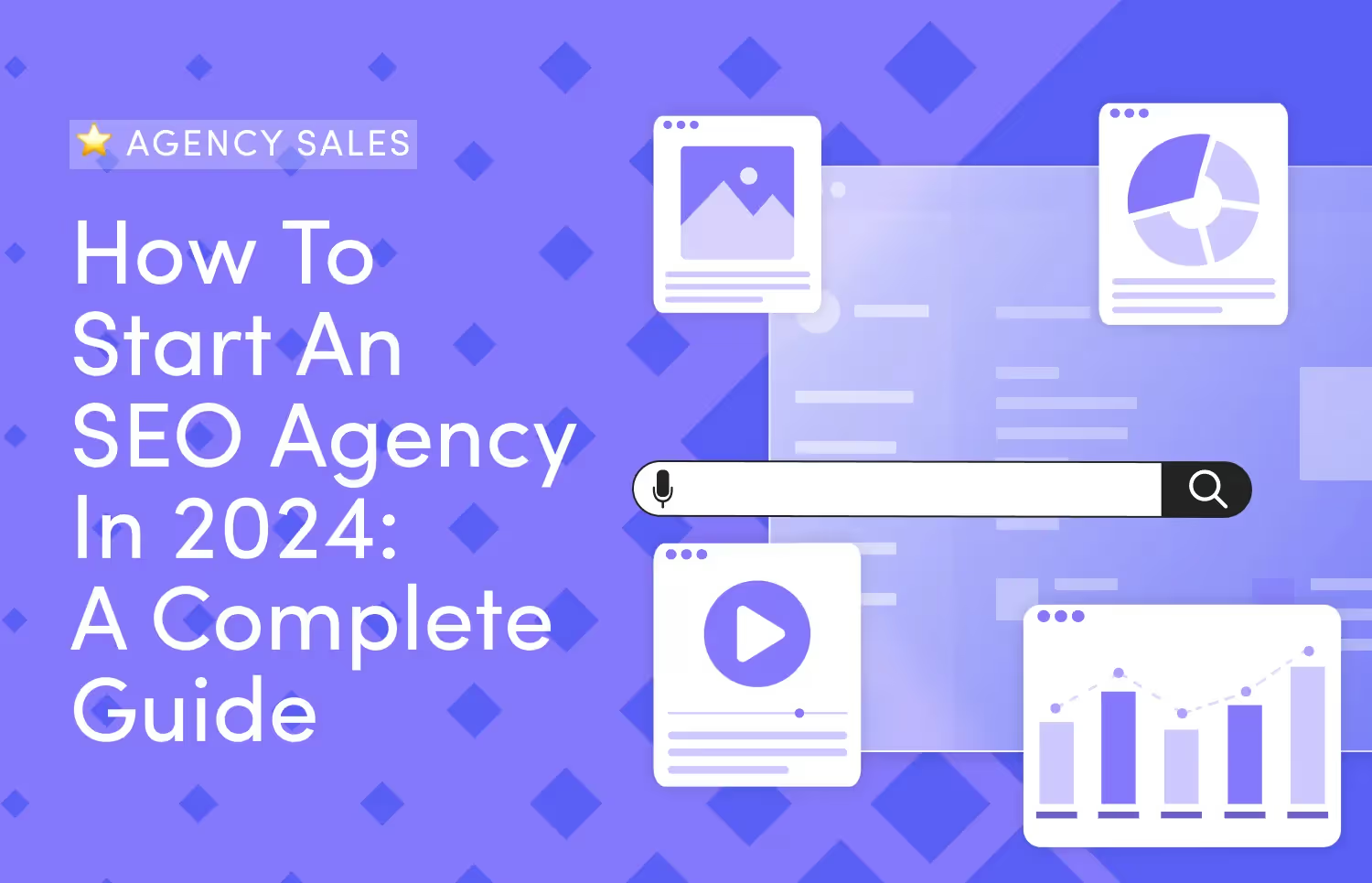


Working as a freelance SEO writer or content strategist is great. You have the freedom to travel and work anywhere without missing deadlines or losing your “job.” You may even be an in-house writer or strategist and have enjoyed creating content that achieves bottom-line business goals—but you want more. Or, to be honest, you are part of the 66% of in-house marketers that are unhappy.
You want ownership over smart, productive SEO strategies; you want to achieve real results for your clients. You want to build a team of top talent and create content that ACTUALLY performs on Google, converts visitors, and meets business goals.
You also want the money (winks). Agency owners (or full-time freelancers with a team) make more than solo freelancers or in-house writers. According to Harry O'Connor, his agencies charge 30x more than when he was a freelancer. In this article, I'll share what you need to know to start and scale an SEO agency and whether you should continue as a freelancer or agency owner.
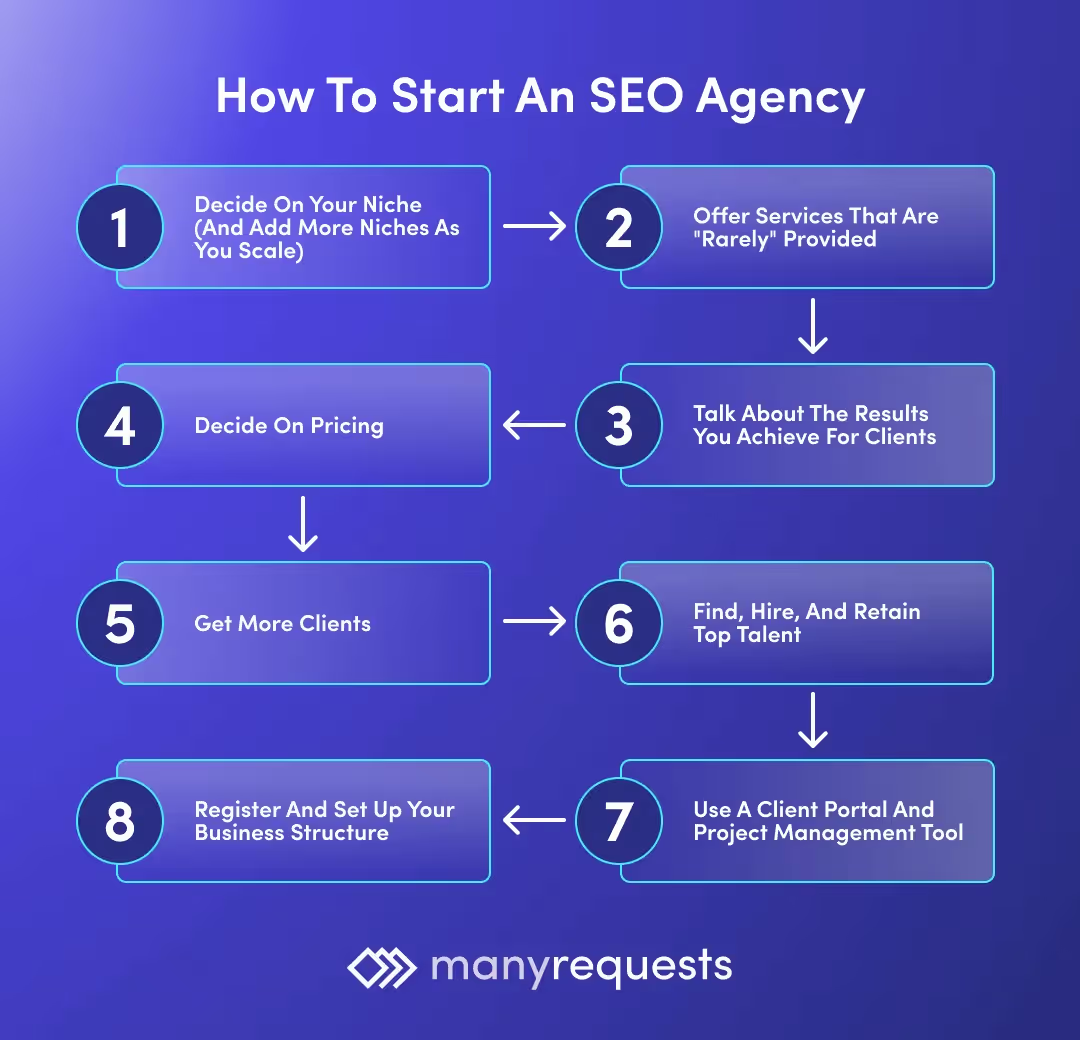
Here are some of the things you must consider before you start an SEO business through the agency route:
Perhaps a better place to start is to know SEO. You can't succeed at SEO if you haven't done SEO before.
Skills such as SEO content strategy or technical SEO are helpful. They give you the confidence to identify content optimization opportunities (or barriers) and create a custom plan to help your clients with immediate and long-term content performance.
More than this, you need to know how to go from A → B → C because any company that will hire you must trust that you can increase their visibility without using shady techniques like keyword stuffing or using AI to write content primarily.
After you learn SEO, if you haven't, then you need to pick a niche.
Having a niche helps you to provide services that are as specific as possible. Your niche should depend on your experience and expertise as a freelancer or a member of an in-house team.
It can also be based on the increased demand for the niche. Your Money or Your Life (YMYL) niches like insurance, taxes, personal finance, cryptocurrency, law, medicine, sustainability, science, and others require knowledge and expertise and pay more than other niches. Writers with expertise and experience in the construction, logistics, e-commerce, and even HVAC industries are also sought after.
Your niche can even be as focused as covering developer marketing or solely writing technical documentation for tech companies or agencies. They are highly technical and focused niches, and the more focused and specialized your skills, the better. When you have your niche nailed down, write out the services you'll offer.
📌 Tip: Read this success story of agency owners earning as low as $309k/year, $500k/year, and as much as $3.6m/year.
I understand there are no services that are rarely provided. But, mainstream content writing and optimization services are overrated. Clients need more.
It's great to offer content strategy, keyword research, content writing, and optimization services to increase performance on SERPs. But it's also awesome to offer services like:
If the company isn't well positioned to help their ICP on these landing pages (or other high-value pages), there will be an increase in traffic but a high bounce rate. This is because the high-value pages didn’t communicate how the product/service will help (or aren’t optimized to convert readers). This single oversight can undermine your efforts, so offer advice on how to improve the landing page copy (if necessary).
This doesn't mean your SEO agency should be a jack of all trades. This means that you should offer services that make you a valuable partner to your clients.
Also, you don't need to offer all these services from the get-go. You can ease into them or create a pack of services on your pricing page showing the tiers of services you offer and what you charge for each, like this Webflow design agency did:
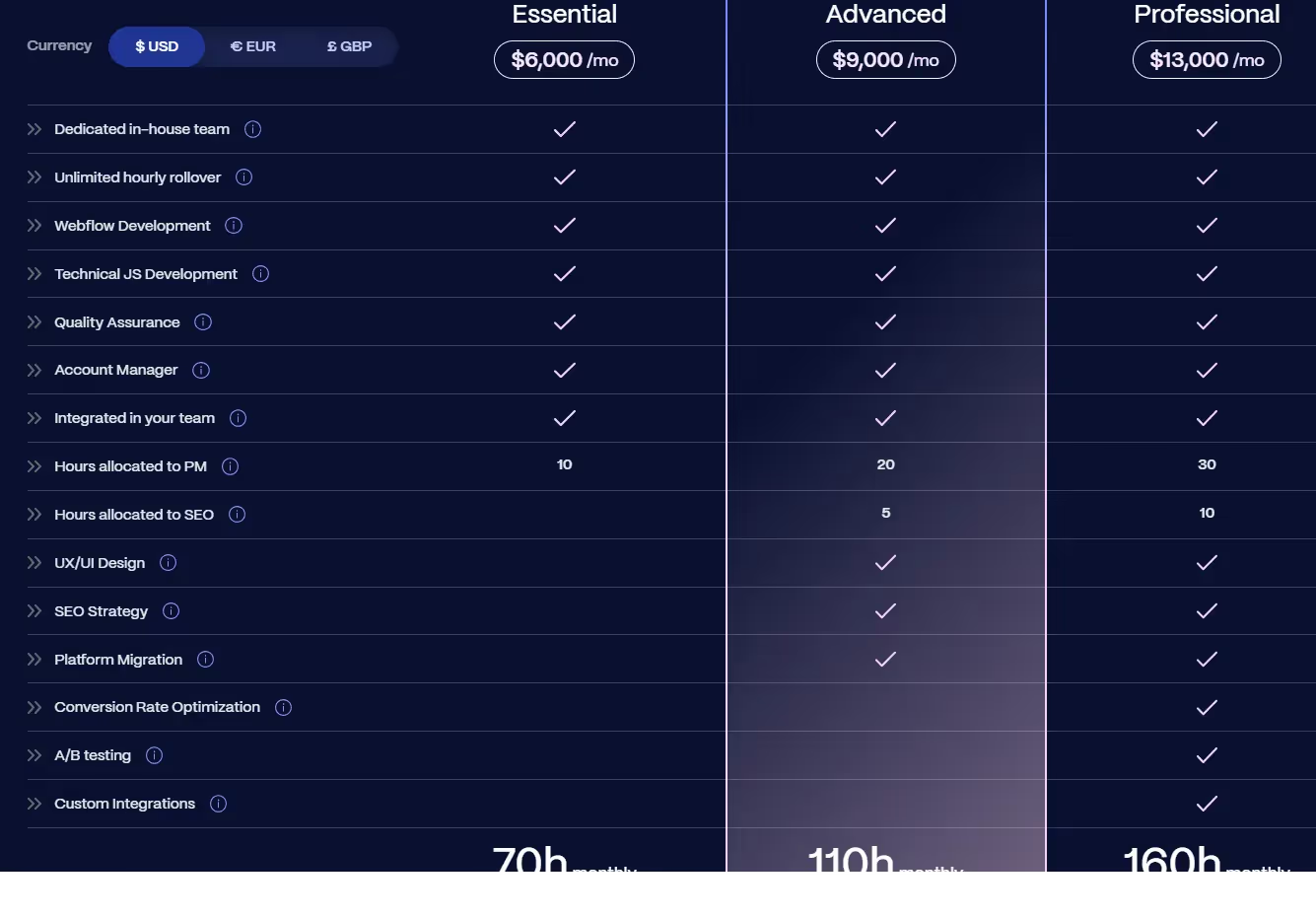
You can also follow Grow and Convert’s style. They started providing PPC ads services when their clients needed them to complement their SEO.
Also, it's understandable if you don't have the major skills to provide more services than the customary content writing services. If this is the case, partner with an expert on content strategy, technical SEO, or any other core skill that could better position your agency as the perfect partner for potential clients.
📌 Tip: Read this article to learn how to position your SEO agency better.
It's not a bad strategy to charge less when you start and charge more 1+ year into your SEO business journey. This doesn't mean you should charge peanuts— which won't help you attract top talent to write great content, manage a client account, or live comfortably.
It means charging less in a way that your prices aren't too differentiated because you still have to prove to new clients that you can help them achieve their specific results. This advice can work for you if you’re not starting with clients you already knew or were referred to you.
So, choose a pricing that works for you:
Superpath has a category on its website dedicated to marketers earning over 100k+/year. Check what they earn to gauge yours (or what you want to have earned by the end of the year).

Superpath’s Content Marketing Report can also give you a range of prices that marketers charge per article (and what they earn per year). The Peak Freelance report has some information— if you're providing content writing services alone (while the client handles strategy), their data shows you can charge as low as $250 per piece or as high as $1,000. It all depends on your niche, your knowledge level, and your expertise.
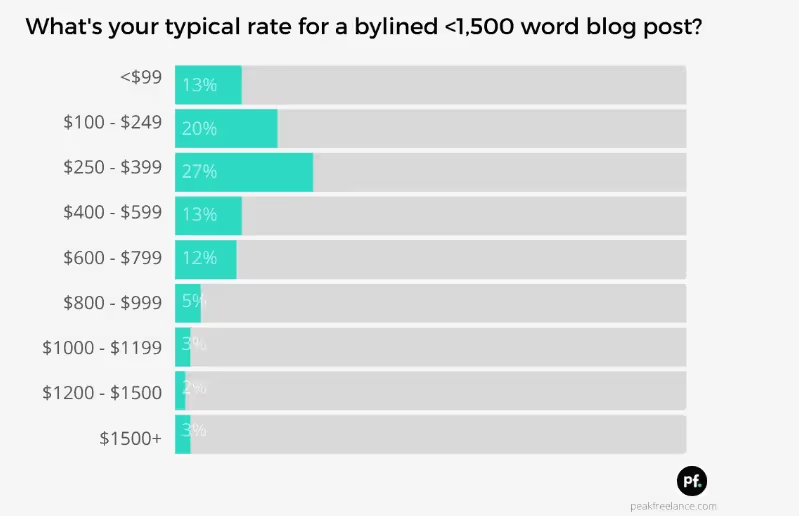
When GrowandConvert puts out calls for writers, they promise $500, and this is bound to increase if the writer improves. Now, imagine how much they bill their clients.

Check existing SEO agency websites to see what they charge (if their pricing information is available). Here’s an example from grizzle.io:

Here’s another example from Beam Content:
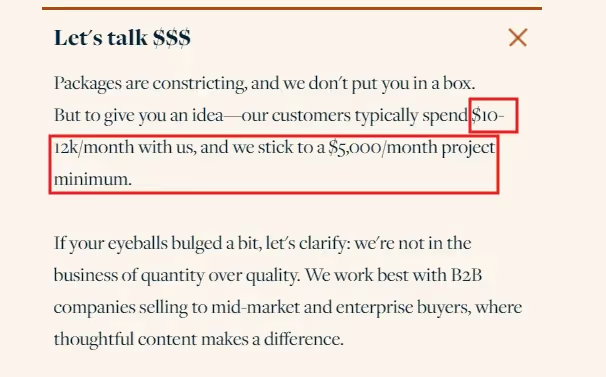
And VEC Studio’s prices range from $5k to $10k/m. See their structure here.
Weigh these prices and services and choose a price point that works for you.
Since you'll offer these different mixes of services, merge them and charge a reasonable price point. You should also be smarter about how to break down your services if you want to. Check VEC Studio’s service page for ideas.
Check other pricing models for agencies here.
When you later increase prices based on what is good for your SEO business, clients who enjoy having you as a partner will stay, especially if they are seeing results.
📌 Tip: If you don't want to make your prices public, read this list of questions to ask clients to know their needs and bill for your services.
I personally learn a lot from the GrowandConvert blog because the authors discuss their processes and how they achieve results for their clients.
So does VEC Studio
So does Ben Goodey’s thefxct and many other SEO experts I respect.
The more they talk and write about how they help existing clients, the more prospects they reach with their content and the more interested prospects might be in their agency.
To do this,
You don't have to worry about building a personal brand, especially if writing on LinkedIn every day isn't feasible for you. Instead, write when you have strong opinions about content strategy or anything marketing, and write about the results you achieve for clients.
Here's an example from Ben Goodey.
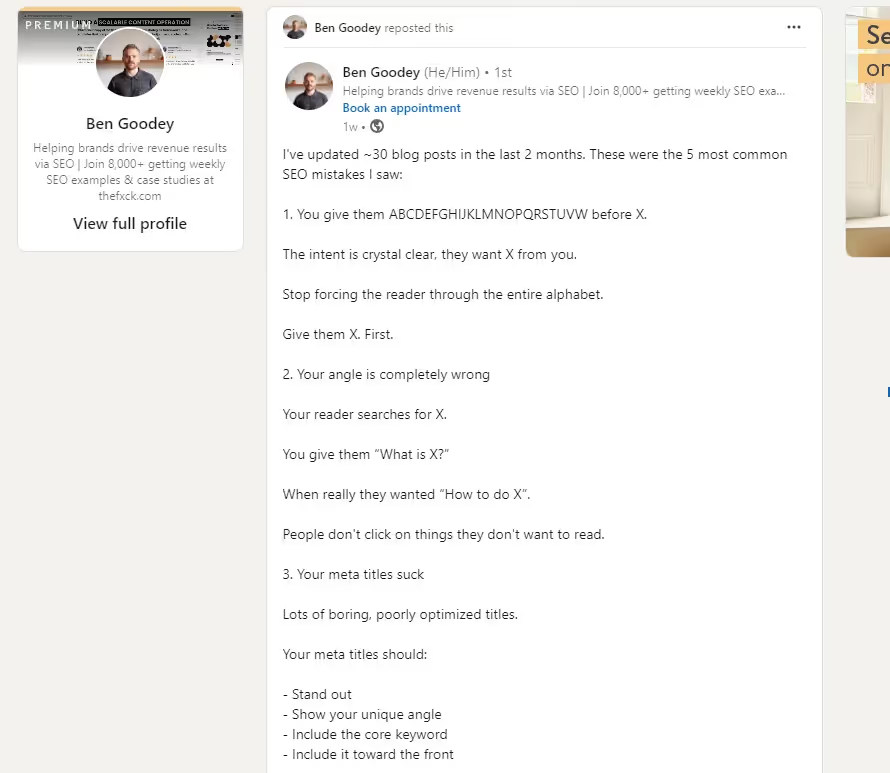
This can happen later if you don’t have the budget. But at least have a portfolio website where prospects can read about strategies that are working for you right now. You can create one with ghost.io.
Here is an example from GrowandConvert. They write blog posts about a problem and solution and also describe how they help clients tackle the problem. They also show results from client data.
Here's another example from VEC Studio. They write about their content strategy, especially their thoughts about product-led content.
You can also publish case studies of how you helped a client do something. These tell potential clients, “That can be you.”
These should be blogs that your prospects read to learn about content strategies that are working right now. This could be after a particular Google Helpful Content Update that affected many websites or in light of updates like Google AI Overviews and the rise of Perplexity AI and other AI browser extensions that summarize web results for searchers.
Writing on these blogs shows expertise, and people who like your thoughts about something may keep in touch and later hire you to manage their content needs.
📕 Note: Don't publish on blogs without organic web traffic.
Don’t be afraid to experiment or do A/B testing to decide what works and what doesn’t. You can experiment to see whether SEO works well with PPC ads (like some have done). You can also consider some strategies for an average-priced product with a high-priced product like GrowandConvert did:
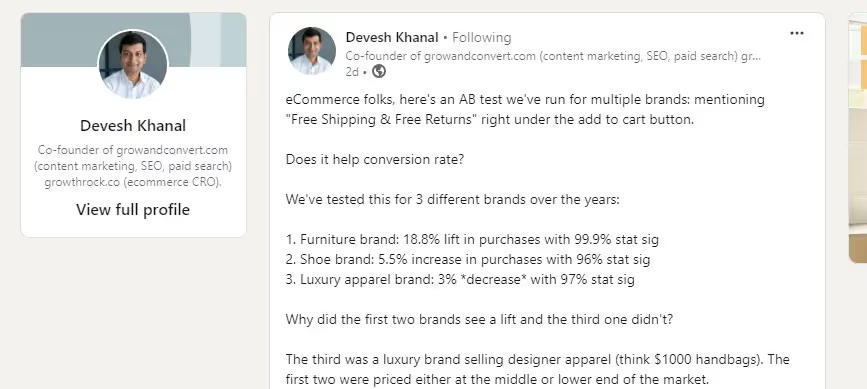
Whatever it is, publish your experiment to show knowledge and expertise.
Applying for jobs is overrated. Many freelancers and SEO agencies apply for the same job, and very few clients read all applications. This isn’t to rule out applying for jobs; you should do it, but don’t make it your primary channel to find clients.
The better strategy is to:
They can mention you to their colleagues, their software service provider, or friends who might need your expertise.
However, remember that the chances of this happening depend on whether you do a great job for them. And whether they love the results so far.
Freelancers often refer clients to other freelancers. I received an email from a client who wants to ramp up content production and needs a recommendation from me:

You should make friends with other agency owners because they may have a client to pass on to you. They may also have other companies looking for the services you offer, especially if they don't offer those services.
For example, a PPC ad agency might refer tech founders looking to increase organic traffic because they believe you will be the best SEO agency for them.
Word-of-mouth marketing is a fast way to get more clients, especially if you meet their expectations.
Starting your SEO agency with cold calling and email is best if you don't mind talking to people on the phone. It also works if you know how to write smart copy that can convert heads and directors of content or founders. It landed the founder of Beam Content, a $50k/y business.
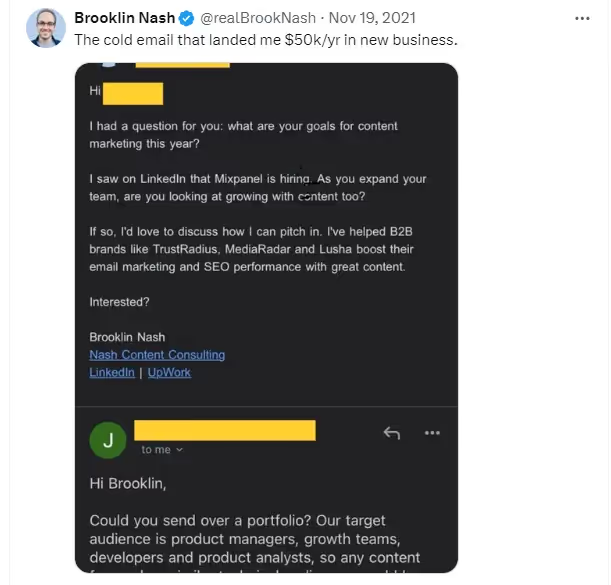
Agency owners have many marketing podcasts and newsletters, and they get business from them. The founders of GrowandConvert have a podcast where they discuss content strategies that achieve results or new experiments.
Foundation Marketing, Animalz, VEC Studio, and many other agencies have newsletters too. They use these newsletters to show expertise (which can potentially convert prospects on their email lists). So, if you have strong opinions about content, start a newsletter and publish at least once a month.
Target specific queries, such as “Freelance home improvement writer,” like Carol J Alexander, whom I know from a marketing community.
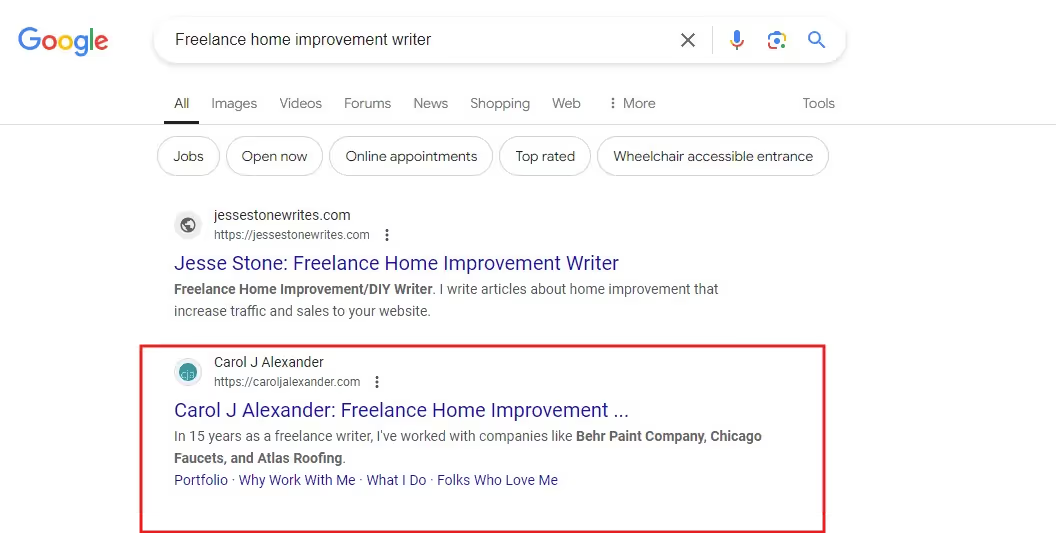
“SEO agency for franchise brands” like HigherVisibility, who I’ve worked with in the past.
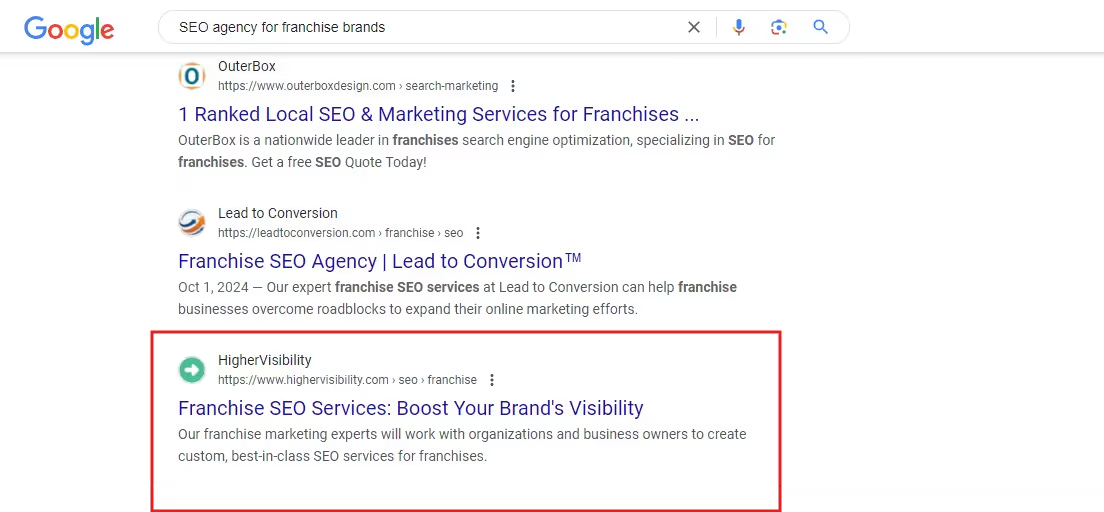
“SEO agency for content distribution” like Foundation Marketing who I really, really respect.
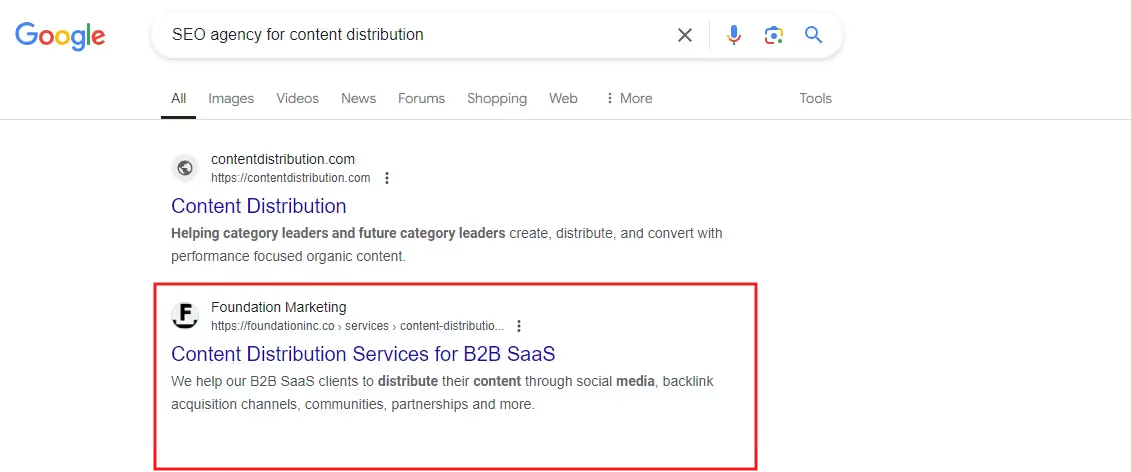
Using these different keyword variations can increase your agency's visibility. You can also optimize different pages for the different services you offer so you can get more eyes on your agency through your website. To keep your website functional, though, publish there as consistently as you can.
📌 Tip: Read this article to learn how to get more clients for your SEO agency. Read this article to learn other client retention strategies. You can also learn about managing client expectations here.
You can only satisfy your clients if you have top talent. This includes content marketing managers, content strategists, and freelance writers. For this article, let's focus on writers. To hire top talent, do this:
The job ad from GrowandConvert includes why they exist, the results they achieve for clients, the kind of content they want writers to write, and the perks of working with them.
Here's another example of an agency hiring content marketing managers. It includes the agency's name, team, details about the role, what they look for in an applicant, and the hiring process.
In both, they wrote detailed descriptions of their ideal hire and what they will do.
According to Ben Goodey, prompt writers to write about their favorite pet in 80-100 words to get a straightforward glimpse of their writing. Instruct them not to use AI.
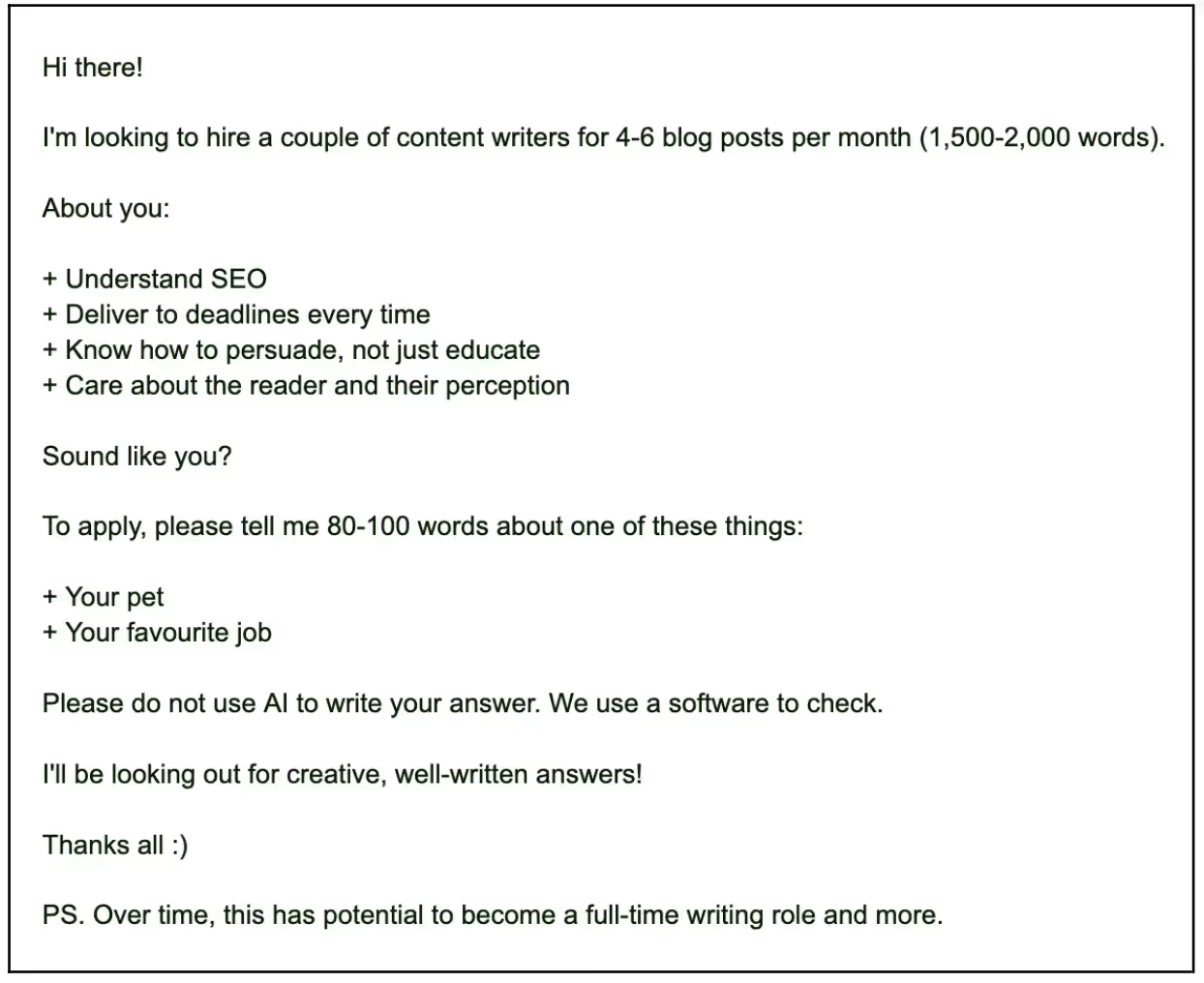
While this may shortchange writers who rush through the application process so their application can rise to the top of the pile, Ben says he reads all submissions. Late applicants still get an opportunity.
So, this strategy can help IF you read all submissions.
However, if you don't want a 100-word essay like Ben recommends, tell applicants to explain a rundown of their research and writing process. This will give you a firm grasp of how they think, research, and gather material for their content and how they write.
After you screen out the submissions you don’t like, follow up with the ones you like with a paid trial.
Ben uses a 300-word preliminary article (paid). This may be too short to gauge writing abilities, but it helps him see if they have potential.
As an alternative, assign a full article (paid trial) and give writers enough time. You can also include the clause, "If we think this piece doesn't meet our standards, we'll pay a flat $200 (or half the $ for the article) to compensate for your time." It all depends on your budget.
Lastly, build internal resources to ensure writers know your standards and can meet them. This includes providing links to quality articles you want them to replicate (or write better) and a specific writing tone or style you want them to emulate.
Here’s another relevant straight-forward example of a job ad:
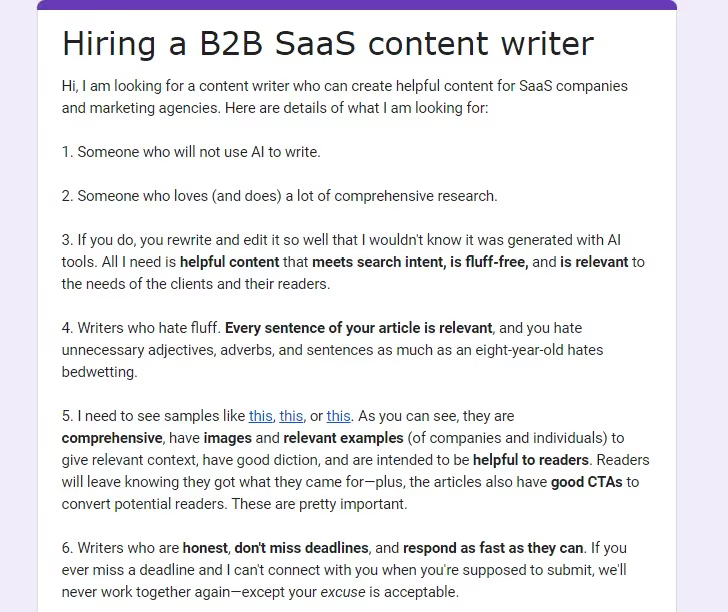
There are four specific types of business structures recommended for SEO agencies:
For this article, I will focus on sole proprietorship, LLC, and S Corp:
A sole proprietorship is the simplest structure for solo entrepreneurs and offers full control and minimal paperwork. However, there is no legal distinction between you and your business, so your personal assets are at risk if your agency incurs debts or faces lawsuits. This can put your savings, property, and other assets in jeopardy.
An LLC offers liability protection— your personal assets are separate from your business liabilities (debts, lawsuits). It also provides tax flexibility and allows you to report profits and losses on your personal tax return to avoid double taxation associated with corporations.
🔥 Bonus: an LLC can boost your agency’s credibility with clients.
An S Corporation allows you to reduce self-employment taxes by paying yourself a reasonable salary and taking profits as distributions, which are taxed at a lower rate. While this structure offers tax benefits, it comes with additional regulatory requirements, such as maintaining corporate formalities and filing specific paperwork.
📌 Tip: To get started, read this guide (+ template) to create your SEO agency business plan.
There are two ways to manage client communication and work with your team. You can either use:
…The list goes on.
Alternatively, you can choose the easier way to manage all these on a single client portal like ManyRequests, which our client, Hey Digital, does. Here's how ManyRequests helps:
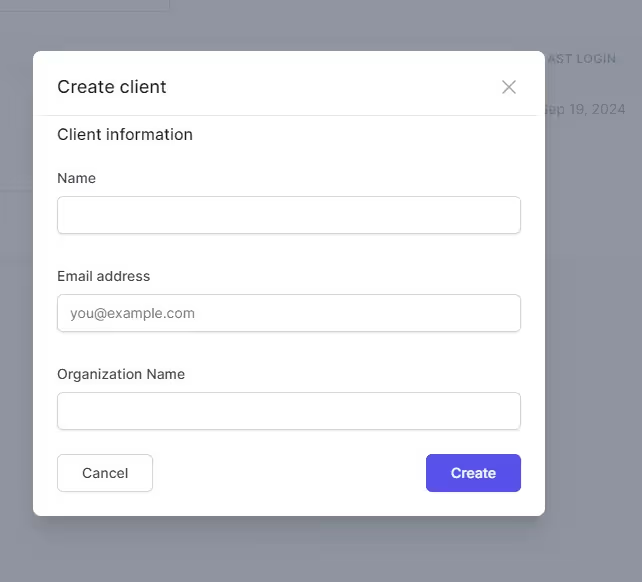
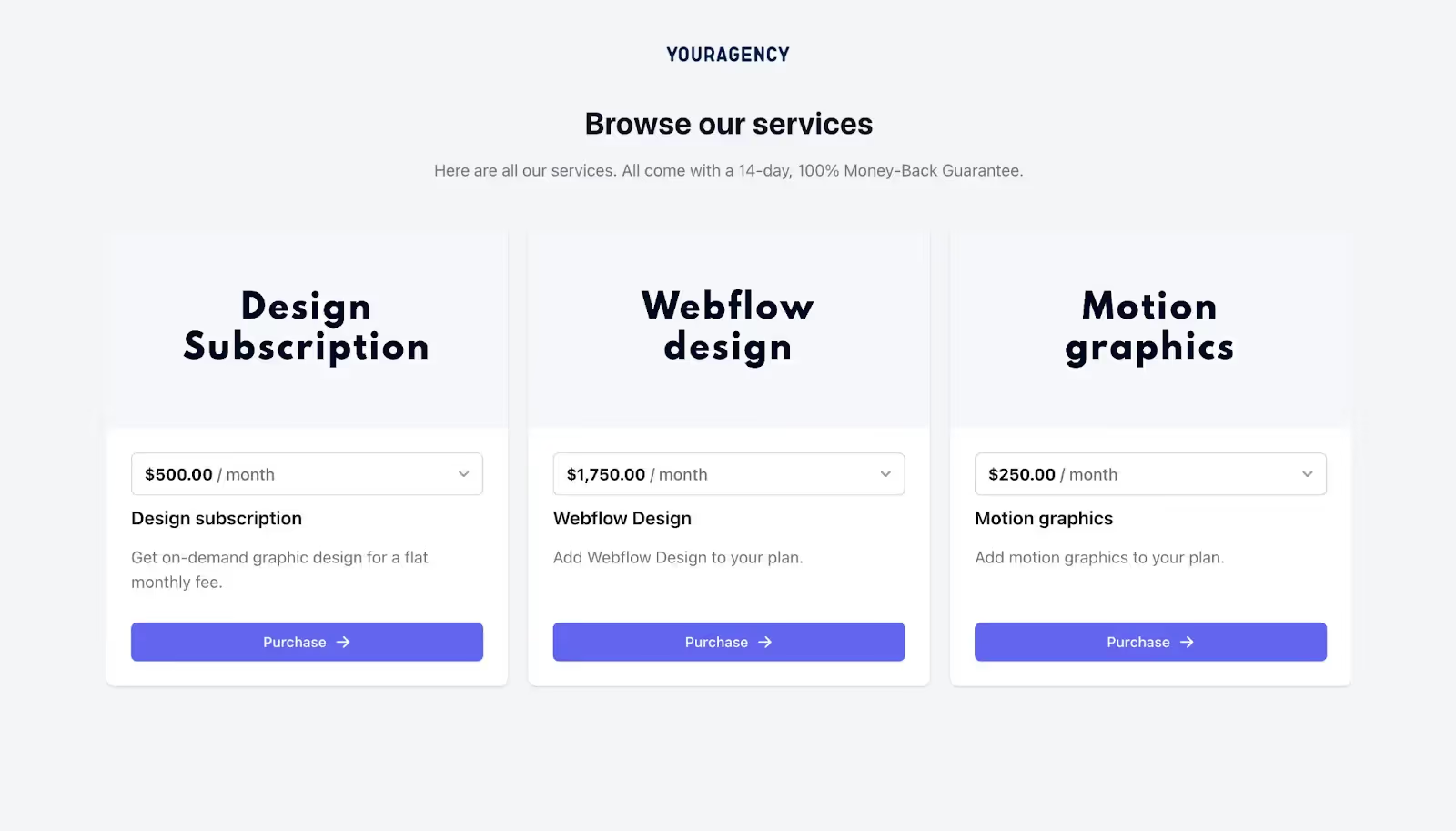
If your pricing structure is pay after service, they'll be invoiced when you complete the tasks/project.
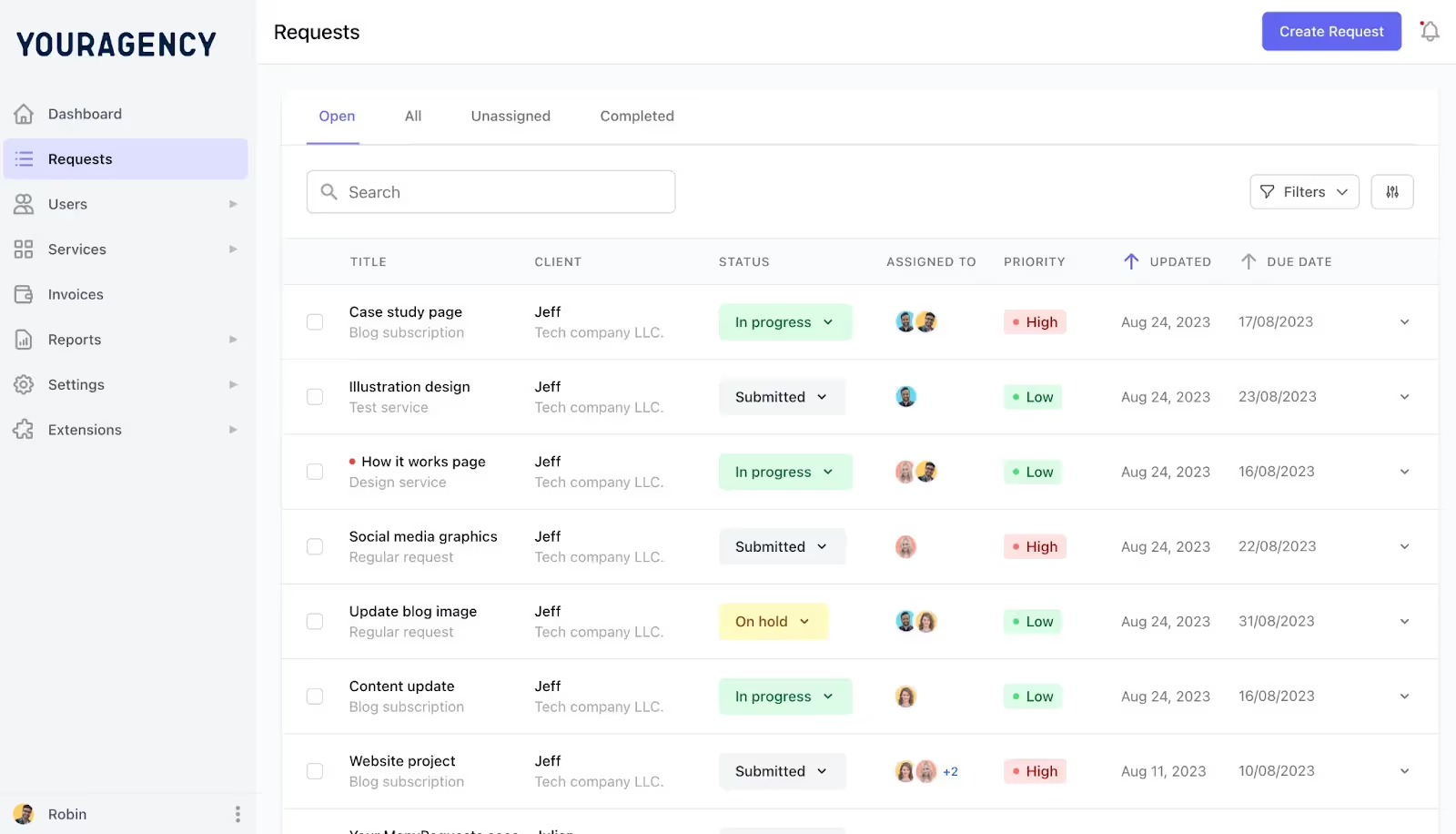

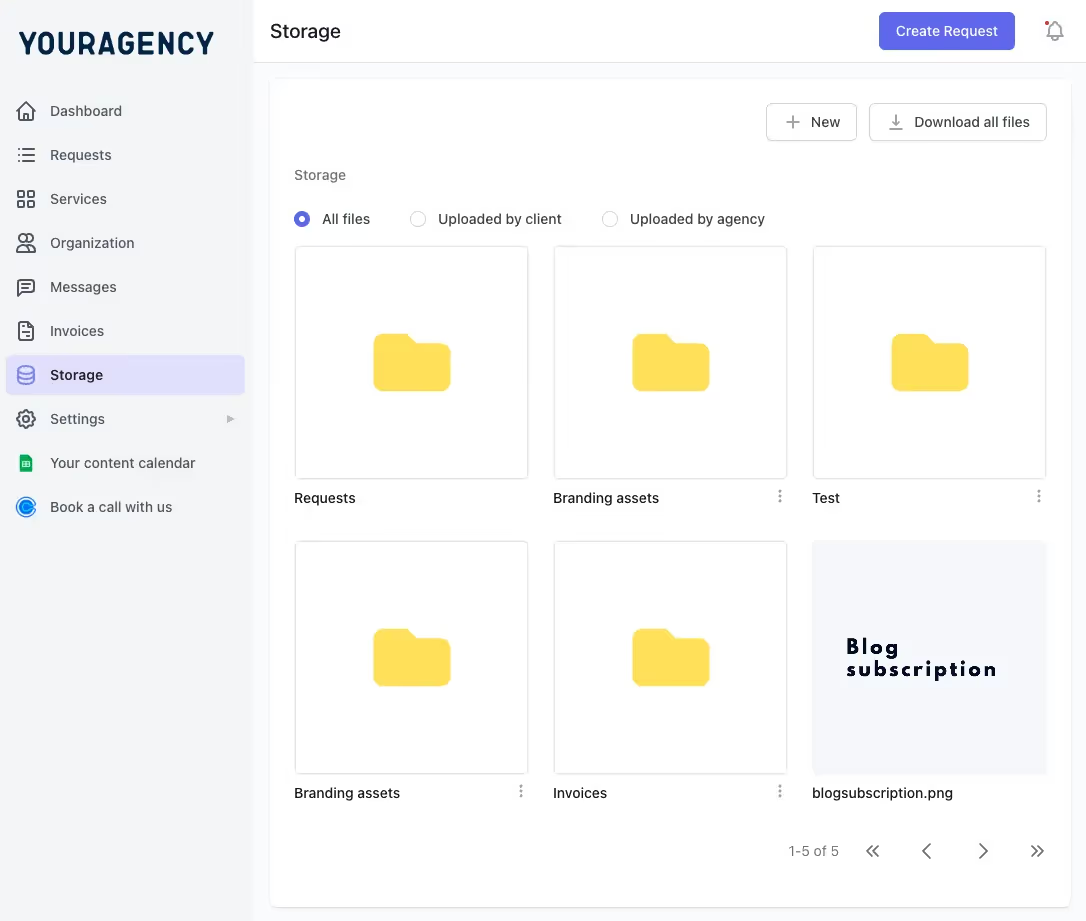

These are just some of ManyRequests's features. You can explore them further by signing up for a 14-day free trial here; no credit card is required.
This helps you:

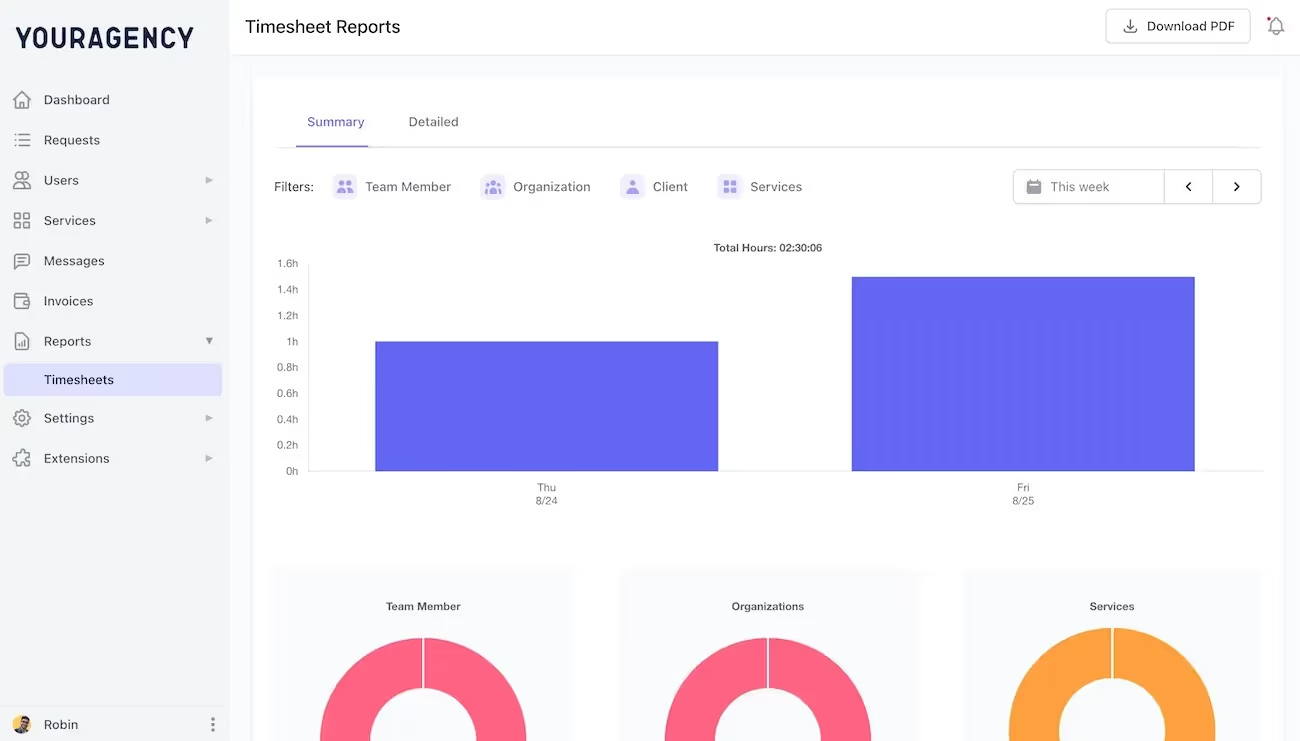
The choice is yours. But here's a quick comparison between an SEO agency owner and an SEO freelancer:
Some of the tools to invest in include:
etc.
I know this may be a lot to take in. Having an agency is great, but it has its cons. Weigh the pros and cons and make your pick. But if you
…start an SEO agency.
And when you’re ready to do so, use ManyRequests to onboard your clients and manage your team directly. To get started, sign up for a 14-day free trial to learn how it works.